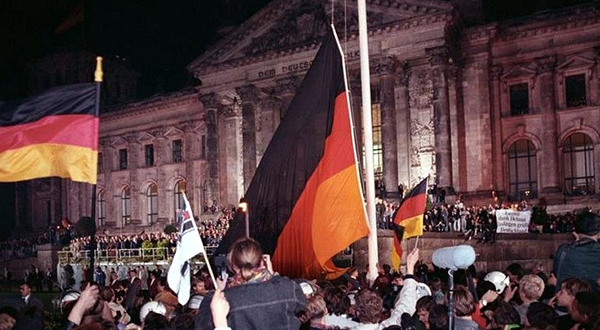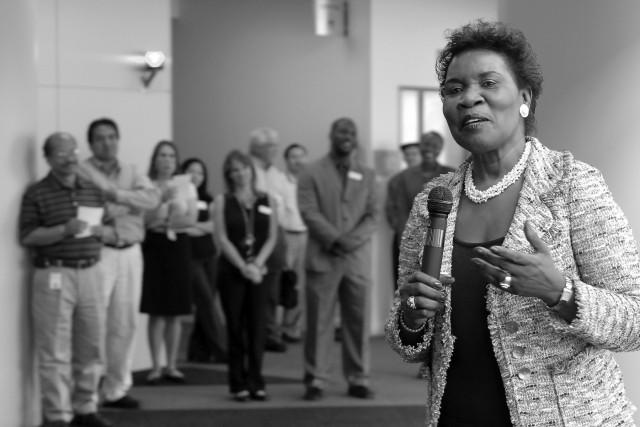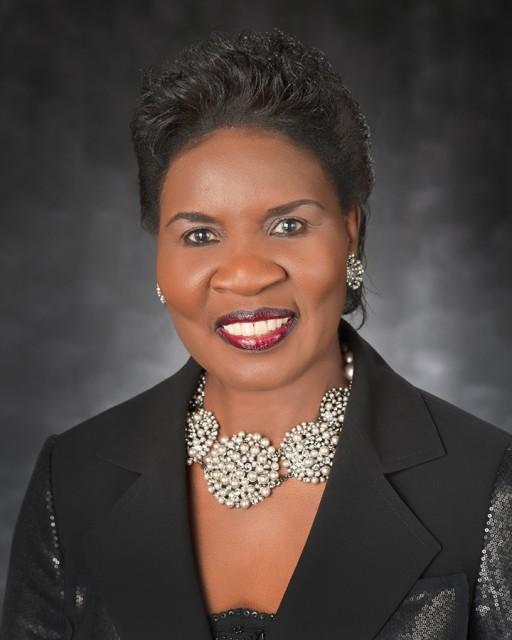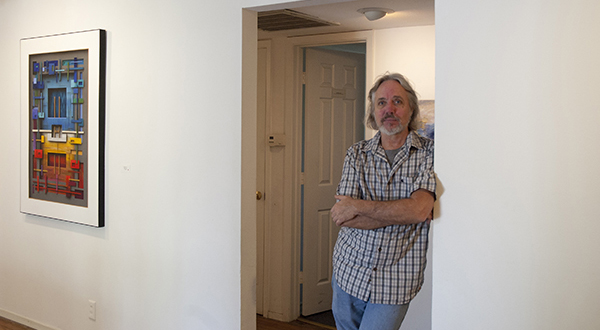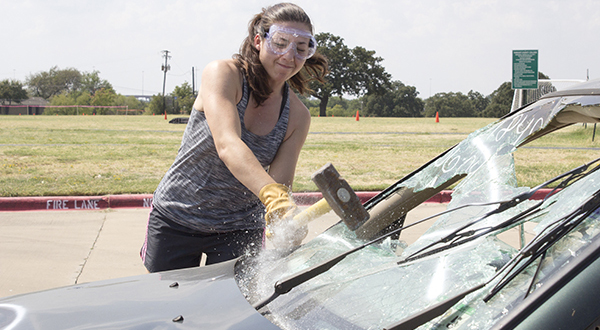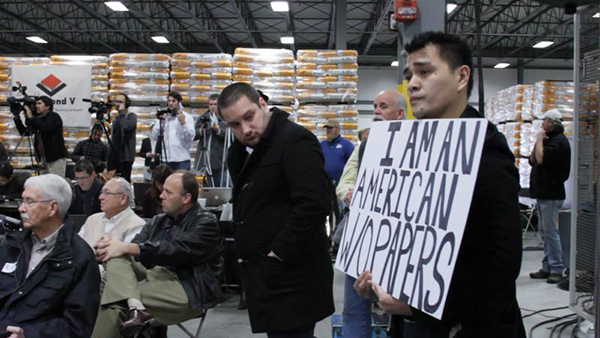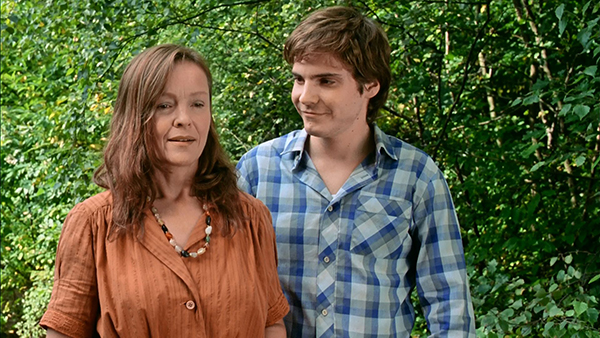By Jamil Oakford/ managing editor
After the fall of the Berlin Wall, Germany faced many tough decisions. The Iron Curtain lifted, and citizens on each side were finally brought together after decades of separation.
For Susan Harding, a former TCC student who grew up in East Germany, this event was both exciting and new. Things as simple as grocery shopping had changed.
“Grocery stores had lines when I was growing up,” said Harding, now a student at Southern Methodist University. “And when the wall fell, in came supermarkets, and I saw brands I never saw before. They had different kinds of chocolate, and there were so many things to choose from.”
A little over a generation ago, Germany was divided into two separate countries, East Germany and West Germany. The two were reunified in 1990, and Oct. 3 marks the 25th anniversary.

German Federal Archives
People on both sides of the wall were given a whole new outlook on life.
NE German instructor Maddalena De Nicola, who lived in West Germany, is helping students learn about this moment in history through a two-day event where she will show two films followed by group discussions.
One of the films chosen is The Lives of Others. This movie tells the story of an East Berlin agent who listens in on conversations of a writer in 1984. It displays the life of someone behind the wall in East Germany.
“A lot of people don’t know what life was like in eastern Germany,” De Nicola said.
Harding remembered the day she experienced merging the life she knew as an East German with the West Germans. She said that clothing was the first difference she noticed.
“I was only 6 years old,” she said. “For me, it was exciting. I was the first in my class to wear a pink Mickey Mouse sweater.”
She also noted the differences in school supplies.
“I went from writing on recycled yellow paper to this white, chlorine paper — little silly things,” she said.
While children found the change fascinating, the time before reunifying both parts of the country was trying for the older generation.
Good Bye, Lenin! follows a young man who goes to extreme lengths to keep his mother from learning about the fall of the Berlin Wall after she wakes from a coma. The film specifically focuses on the loss the older generation felt at the fall of a system they’ve known all their lives.
“There were tensions, and Good Bye, Lenin! will show that,” De Nicola said. “A lot of older people lost their jobs, and they grew up in a completely different system.”
She also said that not all West Germans were exactly thrilled by reunification initially. Some thought it was too costly to invest in renovating the Soviet-made infrastructure in the east.
Harding explained that while Germany is now a unified country, the divisions are still seen and felt in the country.
“You still find those differences in the heart of people,” she said.
But Harding says the differences are even more visible than that.
“When the wall came down, the government put money into building new schools, fixing the roads and the highways because of all the holes in the roads,” she said. “But now, western Germany has infrastructure that isn’t so modern like eastern Germany.”
Both De Nicola and Harding agree that while this was an important decision and an important day in the country’s history, Germany doesn’t treat it as a celebration but more as a remembrance day.
“Unless you are living in Berlin, there won’t be big celebrations,” Harding said.
De Nicola mirrored that idea, both citing that the country’s dark past keeps the national celebration somber.
“Because of the two world wars, started in part by Germany, they’ve been hesitant to celebrate as Americans do on their Independence Day,” De Nicola said.
Harding believes Germany didn’t get a chance to develop the same level of patriotism that the U.S. did.
“We only get patriotic and bring out our flags for football games,” she said.
De Nicola hopes that the two-day movie event will help people understand the conditions and environment that led to reunification.
The lasting effects of reunification for Harding were positive and mean a lot to her.
“My father was born in 1960, and my mom was born a few months after the first wall was built,” she said. “They never got to see the west growing up.”
Harding explained that she now takes advantage of an opportunity that her parents never got, having traveled to 27 countries and 48 U.S. states.
“I’m able to give my parents my eyes through pictures,” she said. “If you look at the world, there are no borders, and borders should not hold you back.”






















